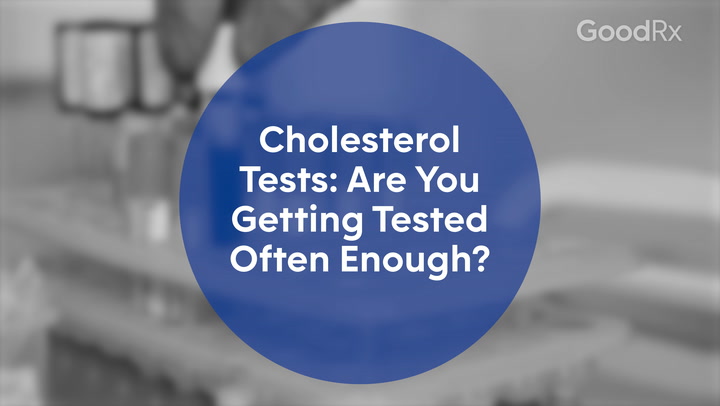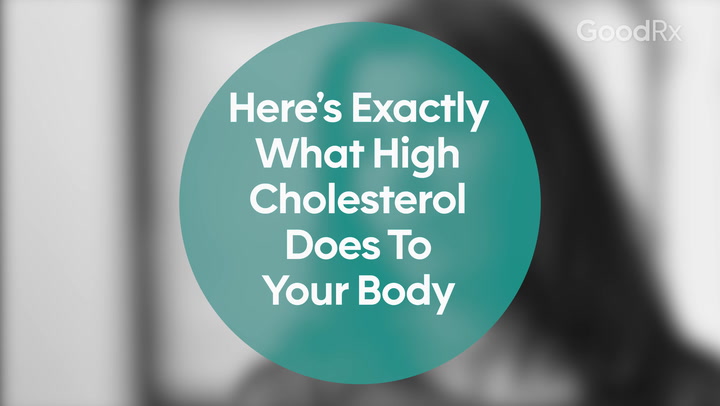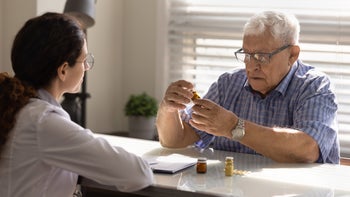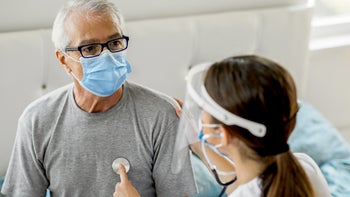
Why Is My Resting Heart Rate High?
Key takeaways:
A normal heart rate is between 60 and 100 beats per minute. It’s normal for your heart rate to increase at different points in the day with exercise or stress.
It’s not normal for your heart to stay over 100 beats per minute when you’re at rest. It’s important to see a healthcare professional to figure out why this is happening.
Common causes of a fast resting heart rate include stress, certain medical conditions, and pregnancy. Supplements, caffeine, alcohol, and tobacco can also lead to a higher heart rate.
Table of contents

Your heart rate (or pulse) changes throughout the day. Some people measure their heart rate during exercise to get an idea of how hard their heart is working. Other people might track their heart rate throughout the day by using their smartwatch. This can sometimes give you clues about your heart health.
Many things can affect your resting heart rate. And a higher heart rate doesn’t always mean there’s a medical problem. But there are also important medical conditions that make the pulse race. In this article, we’ll explore the issues that can affect your resting heart rate. And we’ll discuss when it’s important to get medical care.
What is the average resting heart for adults?
A normal resting heart rate will be a little different for each person. The average adult’s heart rate ranges from 60 to 100 beats per minute. But many things affect someone’s average heart rate, including:
Fitness: People with good cardiovascular fitness — like athletes — tend to have lower resting heart rates. Their resting heart rate may even be in the 50s.
Age: The average adult between the ages of 18 and 30 usually has a heart rate in the low 80s. This decreases as they get older. Adults 50 to 80 years old typically run in the low 70s.
Sex: The average woman has a heart rate of 79. The average man clocks in at 74.
Keep in mind these are just averages. It’s completely normal if your heart rate falls above or below average.
What causes a high resting heart rate?
On a normal day, your heart rate will fluctuate based on what you’re doing, what you’re eating, and how you’re feeling.
We’ll go over the medical conditions that can affect heart rate in the next section. But first, here are some of the common, everyday causes that can make your heart rate go above the normal 100 beats per minute:
Exercise: When you exercise, it’s normal for your heart rate to rise. In most cases, it returns to normal within about 10 minutes of resting.
Stress: Stress or anxiety raises your heart rate. That’s because these conditions cause your body to release adrenaline, a stress hormone. Usually, this is a short-term issue and isn’t harmful. But chronic stress can increase your resting heart rate.
Poor sleep quality: If you don’t get enough sleep, your heart rate may be higher the next day. Just missing 1 hour of sleep is enough to raise your resting heart rate.
Sugar: Sugary foods and beverages will raise your blood sugar levels. And this may cause your heart rate to rise.
Caffeine: Most people can enjoy 1 to 2 cups of tea or coffee without side effects. But if you’re sensitive to caffeine, or if you overdo it, it may temporarily bump up your heart rate. Energy drinks often have high amounts of caffeine and sugar, so it’s best to avoid them.
Alcohol: Drinking alcohol often causes your heart rate to increase. As the alcohol wears off, your pulse should return to normal. Less commonly, drinking can trigger serious heart rhythm problems, like atrial fibrillation.
Tobacco: Tobacco and nicotine in any form can raise your resting heart rate. But it’s not just the direct effects on the heart. People who smoke often have lung conditions that make the heart work harder.
Supplements: The FDA doesn’t regulate supplements, so you don’t always know what you’re getting. Any supplement marketed to boost energy may have ingredients that raise the heart rate. Supplements that affect hormone balance or weight loss can also increase heart rate.
Substance use: Cocaine, amphetamines, and other drugs raise your heart rate. Usually the pulse returns to normal when the drugs wear off. But these substances can also cause heart damage that can lead to a persistently high pulse rate.
Can a cold increase your heart rate? Yes, the common cold can cause a high heart rate. But that doesn’t mean you should ignore it.
Heart rate vs. blood pressure: These are two different measurements, but are connected. Learn how each one can impact the other.
Should you see a doctor for heart palpitations? These are a common symptom, and not always a problem. Here’s how to know if you should see a healthcare professional.
What medical conditions can raise your resting heart rate?
It’s normal for the heart rate to vary from hour to hour or day to day. But if your heart rate stays over 100 beats per minute, it may be a sign of a medical condition.
Common medical causes of a fast heart rate include:
Anemia: This happens when you don’t have enough red blood cells in the body. Iron deficiency is the most common cause. This might be due to things like heavy periods, stomach ulcers, or other gastrointestinal conditions.
Hyperthyroidism: Too much thyroid hormone in the bloodstream can cause the heart to race. This can be a result of a thyroid condition like Graves’ disease. It can also be due to taking too much prescription thyroid hormone, which is used to treat hypothyroidism.
Infections: Infections of any kind put stress on the body and often raise the resting heart rate. This is especially true if you have a fever.
Pregnancy: During pregnancy, your average heart rate increases by about 20 beats per minute. That means that if you usually run a pulse of 80, it may increase to 100. In most pregnancies, the heart adapts to these changes without any problem.
Arrhythmias: Heart rhythm problems can speed up your heart rate or make it irregular. These include atrial fibrillation, paroxysmal supraventricular tachycardia (PSVT), and ventricular tachycardia. Many people experience palpitations (strong heart beats) or dizziness with these conditions.
Postural orthostatic tachycardia syndrome (POTS): This condition causes a fast heart rate and dizziness when you stand up. If you’re diagnosed with POTS, that means there are no other underlying medical conditions to explain the fast heart rate. Experts are still trying to figure out what causes it.
Cardiomyopathy: This is the medical term for a weak or abnormally stiff heart muscle. And it can lead to congestive heart failure. Other symptoms include shortness of breath (especially when lying flat) and swelling in the legs. This problem is more common in people older than 60 years, but it can happen at any age.
Pulmonary embolism: Blood clots in the lungs can cause shortness of breath and a rapid heart rate. Common causes include cancer, pregnancy, and long periods of immobility.
Read more like this
Explore these related articles, suggested for readers like you.
Medications that can raise your heart rate
Some medications can also raise your heart rate. These include:
Levothyroxine (Euthyrox), the replacement thyroid hormone for people with low thyroid function
Medications that treat attention-deficit hyperactivity disorder (ADHD)
Check in with your pharmacist or healthcare team if you’re concerned your medications are affecting your heart rate.
How can you improve your resting heart rate?
If you’re feeling well and your resting heart rate is just a little high, there are a few things you can do to bring it down. These include:
Regular exercise: People who exercise regularly tend to have a lower heart rate. Aim for 30 minutes 5 days per week. But even 15 minutes per day can make a difference. Aerobic exercise and yoga are especially good choices.
Maintain a comfortable and balanced body weight: If you have a higher weight, you are more likely to have a faster heart rate. If you’re working toward weight loss, there are many different treatments that can help.
Stay hydrated: When you are well hydrated, your heart rate is less likely to run high. There’s usually no need to buy expensive sports drinks. Water is the best option for most people.
Pay attention to your stress levels: Stress is a normal part of life, but it can increase your heart rate. Practice relaxation techniques, such as meditation, deep breathing exercises, or yoga to counteract the effects of stress.
Limit caffeine and alcohol: As we mentioned above, alcohol and caffeine can affect your heart rate. So, cutting back can help bring it back into a normal range.
Avoid tobacco and nicotine: Tobacco, along with other forms of nicotine like vaping, tend to raise your resting heart rate. When you quit, your heart rate is likely to improve.
Get enough sleep: It’s not always easy to prioritize sleep, but there are a number of different ways you can get better sleep.
But it’s important to know when it’s time to get medical attention rather than try to lower your heart rate on your own.
When should I see a healthcare professional about my heart rate?
Even if there’s an obvious reason why your heart rate is high, it can still be hard to know when you should see a healthcare professional. An elevated heart rate can be the first warning sign of many different things going on in the body. So don’t hesitate to ask for help when something doesn’t seem right.
It usually isn’t normal for your heart rate to stay over 100 beats per minute for hours at a time. And a heart rate that suddenly and unexpectedly jumps up to greater than 120 beats per minute could be a sign of trouble. If this happens, be sure to get medical attention. There are also other symptoms you shouldn’t ignore.
The following red flags are good reasons to see a healthcare professional as soon as possible:
A heart rate that remains faster than normal
Palpitations that last for more than a few minutes
Shortness of breath
Chest pain, pressure, or tightness (either at rest or with exercise)
Fainting, lightheadedness, or dizziness
New swelling in one or both of your legs
If you’re having trouble getting in touch with a healthcare professional, these are all good reasons to visit your nearest emergency room. Don’t wait for a scheduled visit if your symptoms feel severe or get worse.
Frequently asked questions
To take your resting heart rate, make sure you’re sitting and haven’t recently exercised. You can usually find your pulse by feeling the inside of your wrist, just below the base of your thumb. You will feel a soft, pounding sensation there. You can count how many times you feel this in 1 minute, or you can count it for 10 seconds and multiply by 6.
If you have a smartwatch or other electronic heart monitor, you may be able to get an electronic read out of your heart rate. Most of the time these devices are fairly accurate.
If you notice that your heart rate is higher than usual, ask yourself if there’s something that you’re doing or feeling that could be contributing to the problem. Often just sitting quietly for 10 to 15 minutes, away from stress and stimulants, can make a difference. Listening to slow, peaceful music may help. Another great technique that can help is deep breathing:
Find a quiet and comfortable place to sit or lie down.
Close your eyes and take a deep breath in through your nose for a count of 4.
Hold your breath for a count of 4.
Exhale slowly and completely through your mouth for a count of 6.
Repeat this deep-breathing cycle for several minutes until you feel your heart rate slowing down.
The bottom line
Most of the time, a fast heart rate settles down by itself. If your heart rate is high, pay attention to your stress level, your food and drink intake, and whether you’re getting enough sleep. It also helps to avoid things like caffeine, nicotine, and alcohol. But don’t delay a visit to a healthcare professional if your pulse is persistently over 100 beats per minute. And consider a visit to the nearest emergency room if you have other uncomfortable or worrisome symptoms. A healthcare professional can quickly help you get to the root of the problem.
Why trust our experts?


References
American Heart Association. (2024). All about heart rate.
Avram, R., et al. (2019). Real-world heart rate norms in the Health eHeart study. npj Digital Medicine.
Darki, C., et al. (2022). The effect of classical music on heart rate, blood pressure, and mood. Cureus.
Faust, L., et al. (2020). Deviations from normal bedtimes are associated with short-term increases in resting heart rate. npj Digital Medicine.
Martins, F. D. S., et al. (2017). Suspected infection in afebrile patients. Medicine.
Muñoz, J. L. (2024). Physical changes during pregnancy. Merck Manual.
Papathanasiou, G., et al. (2013). Effects of smoking on heart rate at rest and during exercise, and on heart rate recovery, in young adults. Hellenic Journal of Cardiology.
Price, L. R., et al. (2019). Cardiovascular, carcinogenic and reproductive effects of nicotine exposure: A narrative review of the scientific literature. F1000Research.
Reimers, A. K., et al. (2018). Effects of exercise on the resting heart rate: A systematic review and meta-analysis of interventional studies. Journal of Clinical Medicine.
Rossi, R. C., et al. (2015). Impact of obesity on autonomic modulation, heart rate and blood pressure in obese young people. Autonomic Neuroscience.
Ryan, J. M., et al. (2002). Relations between alcohol consumption, heart rate, and heart rate variability in men. Heart.
Turnbull, D., et al. (2017). Caffeine and cardiovascular health. Regulatory Toxicology and Pharmacology.
Valensi, P., et al. (2011). Influence of blood glucose on heart rate and cardiac autonomic function. The DESIR study. Diabetic Medicine.





























